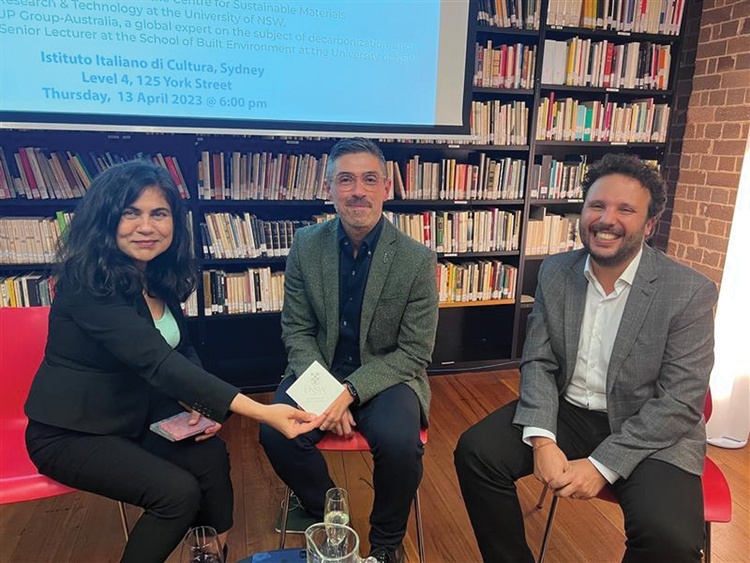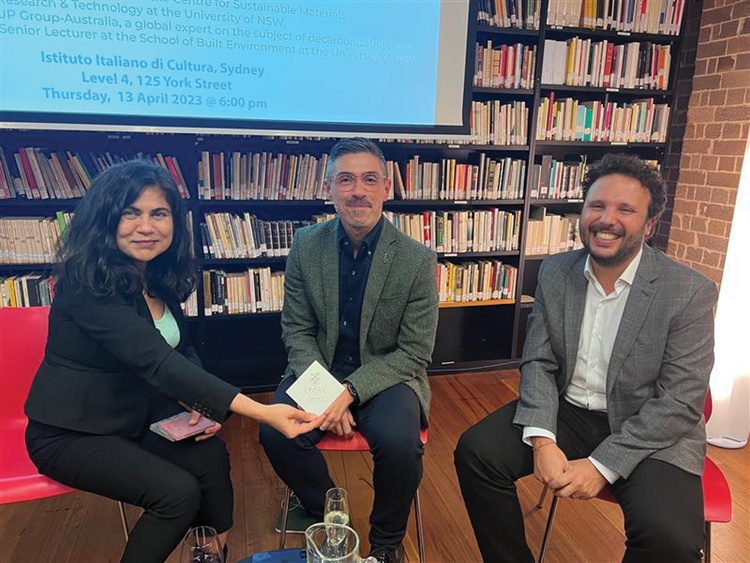Present were Professor Veena Sahajwalla, director of the Centre for Sustainable Materials Research & Technology (SMaRT) at the University of New South Wales and Dr. Enrico Zara of the ARUP Group, an expert on decarbonisation.
Dr. Luciano Cardellicchio, professor at the School of Built Environment at the University of New South Wales, served as moderator for the evening.
Professor Sahajwalla and Dr. Zara discussed waste transformation in the production of green building materials and new frontiers for building design, addressing recycling and its importance for environmental sustainability.
“We’re all concerned about the environment, but in terms of practical results it’s necessary to ask what we could do to improve the situation,” said Professor Sahajwalla.
She went on to say that most people often think only about recycling, but what should be thought about is the entire life cycle of a given product.
Professor Sahajwalla reiterated that “it's time to address new ways to reuse our waste, recycle resources and put them into a new production cycle”.
She and her team at the research centre have combined textiles and glass to produce household tiles, called “green ceramics” and designed a series of machines, called MICROfactories, that can be used outside the lab for similar products.
These tiles are of exceptional quality and can be used for all intents and purposes, so much so that more and more companies have approached the centre to use them.
“We need to look at what is available locally by putting it back into production, make sure that we create not always economies of scale but economies of purpose, so we will have a greater impact on the community as well,” she said.
Dr. Enrico Zara's passion for solving problems regarding climate change has led him to assist companies and institutions looking to implement ESG (Environmental Social and Government) strategies.
Zara said that because climate change and sustainability are dominated by uncertainty, an important step in encouraging companies to act responsibly is the ability to explain in simple terms the impact of certain choices and their costs.
Another important point, Zara pointed out, is the fact that pension funds are offering investors more sustainable investment options, meaning investments can also have a large impact toward eliminating fossil fuels.
Two examples of eco-ingenuity come in the form of ‘green steel’, the production of steel without the use of fossil fuels, as well as ‘green hydrogen’.
Both materials could help reduce the carbon footprint of the steel industry.
Change is already happening and the dialogue between the various industry and research sectors is evidence of a society that is evolving and laying the groundwork for a better future.












